Together Stronger: Six things we learned from Wales documentary
- Published
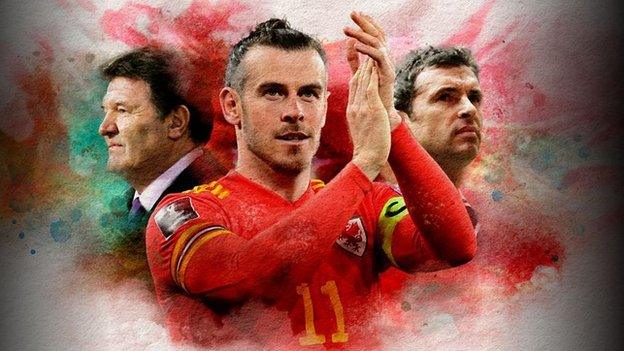
It was a football revolution that took the game by storm.
The story of how Wales rose from 117th in the world rankings to tournament semi-finals is the stuff of Roy of the Rovers comic books.
Now with the nation's World Cup hopes on the team's shoulders, a BBC documentary has charted the roots of that remarkable rise.
Here are six things we learned from Together Stronger, that kicks off with the appointment of John Toshack.
The cafe meeting
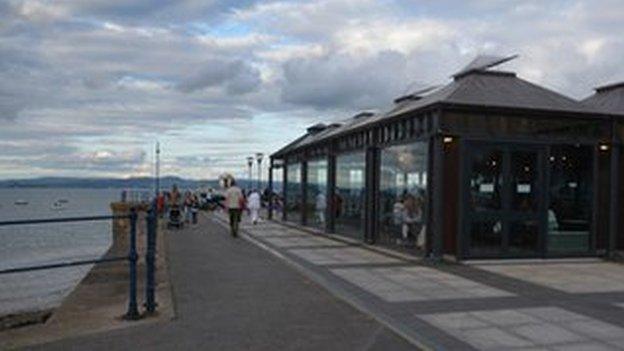
The seafront cafe on the Mumbles where the future of Welsh football was mapped out
Toshack took over for his second spell in charge of Wales in November 2004 but this time inherited a mutinous team who started jumping ship.
Twelve senior players retired from international football, including Robbie Savage who, according to Toshack, put the phone down on the manager.
So Toshack took the crucial decision to start again with a new generation of young players and he knew just the man to help, his former team-mate and Wales Under-21s coach Brian Flynn.
Flynn said: "I had a call from John. He said, 'I've got something for you, a proposal. Where are you?' I was in Port Talbot and he was in Verdi's cafe in Swansea. 'Can you meet me in half an hour?'
"And that's how it all started. We put this plan together because he said the squad was too old. The average age was well over 26-27. He wanted to bring that down to 22-23.
"But his parting shot was that this would take a minimum five years, possibly 10, and always remember someone else is probably going to get the credit."
Flynn puts in the miles
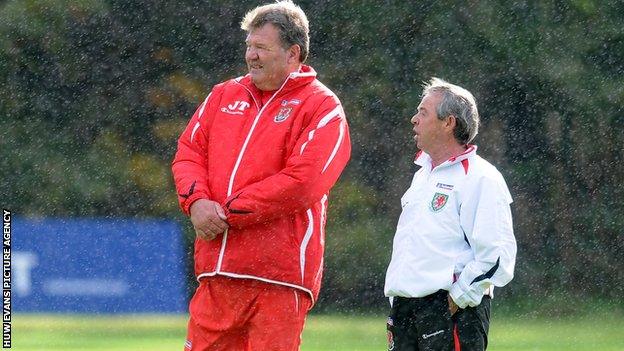
Under head coach John Toshack's orders, Brian Flynn scoured the UK looking for young Wales-qualified talent
Tasked with finding a new generation of players, Flynn embarked on a personal odyssey, travelling the length and breadth of the UK, sometimes taking in three or four games in a day.
His remit was simple... find new Wales-qualified talent by whatever means necessary. Future Wales captain Ashley Williams was discovered simply based on a speculative enquiry about his surname, while Flynn was tipped off about striker Hal Robson-Kanu because he spent his summer holidays in Tenby.
"Bryan's role in all this cannot be stated high enough," said Mark Evans of the Football Association of Wales (FAW).
"The miles he [covered], the people he met, the people he upset! He was fearless. He would walk into a training ground, go up to the players and ask, 'Are you Welsh? Are you Welsh? What about you?'"
'Bale is not a left-back'
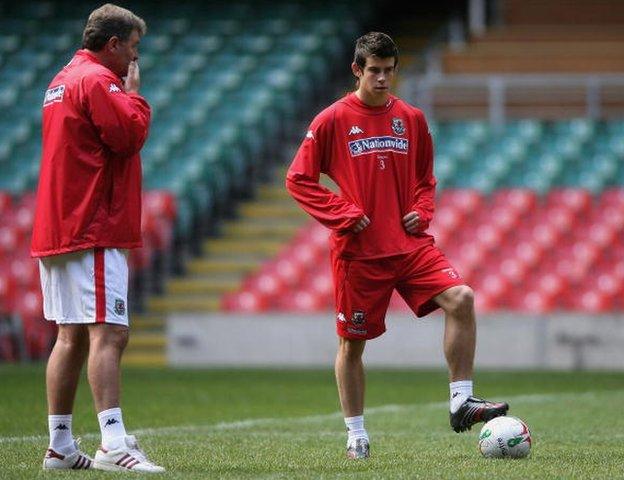
Brian Flynn convinced Wales coach John Toshack that Gareth Bale was old enough to play for Wales aged 16
Flynn convinced Toshack that a raw but promising teenager playing at Southampton was worth a go, despite only being 16 years old. The player was Gareth Bale.
"After the first [Wales] training session we could see he was something special. I said, 'there's one thing you'll never believe, he's a left-back at Southampton.'
"He had to be a forward. So the first opportunity we had, we played him not as a wing, but an attacking left-sided player. I told John, if you play him further forward that will be his position."
Bale became Wales' youngest international, aged 16 years and 315 days. The rest is history.
Bonds are created
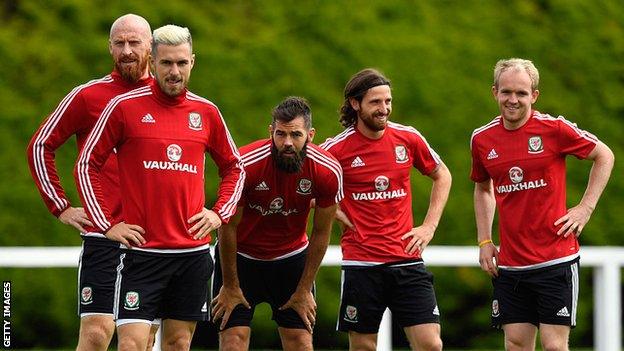
The new Wales squad became close friends as well as team-mates
Toshack wanted to breed a new team, but that is often easier said than done when pressure mounts as one qualification campaign after another faded away.
Even the manager branded a 3-1 defeat in a European Championships qualifier in Cyprus in 2007 as "one of the worst" Wales performances he had ever seen.
Young players such as midfielder Aaron Ramsey were grateful for the opportunities, but it was the bonds forged under this adversity that would prove so strong years later.
"The system was in place to give us opportunities to play at the highest level," Ramsey said.
"They were tough times but we stuck at it. We stuck together, especially the players who had been coming through at that time. We knew that eventually it would pay off."
Speed feel-good
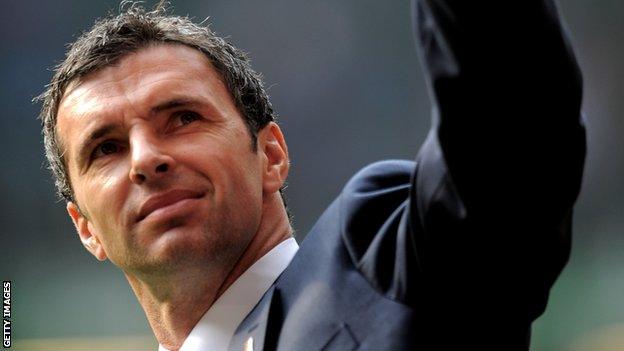
Gary Speed won 85 caps for Wales before going on to manage his country
Having tipped his close mate Chris Coleman to go for the Wales job, Gary Speed was himself appointed to succeed Toshack., external
He would be the poster-boy of Welsh football but would also be a breath of fresh air, bringing a level of professionalism, but also enjoyment, that many in the Wales camp had not experienced before.
Bale said: "He brought a new professionalism and a new energy that all the players bought into.
"He changed the whole foundation of the FAW from top to bottom. He built that solid platform for us to build on in the future.
"It brought a snowball effect. Perhaps we weren't playing amazing but we were winning. Finally it was no longer about trying to get through games without losing.
Norway the right way

Joe Allen won only his fifth cap against Norway but recognised the game marked a turning point
It may have only been a friendly, but a scintillating 4-1 win over Norway in Cardiff would prove the "catalyst", according to Bale.
Wales had not only finally learned how to win games, but to do it in style.
Ramsey said: "There was a plan in place and a clear vision where everything was taken care of off the pitch. But also on the pitch, we wanted to create an identity in our way of playing."
With a winning style that was easy on the eye, the fans began to return.
Midfielder Joe Allen said: "Everything that we had worked on was put in motion that day. Players and fans alike left that game thinking, 'Here we go, we're potentially on the verge of starting something great'."
How right he was.
You can watch Together Stronger now on demand on the BBC iPlayer.